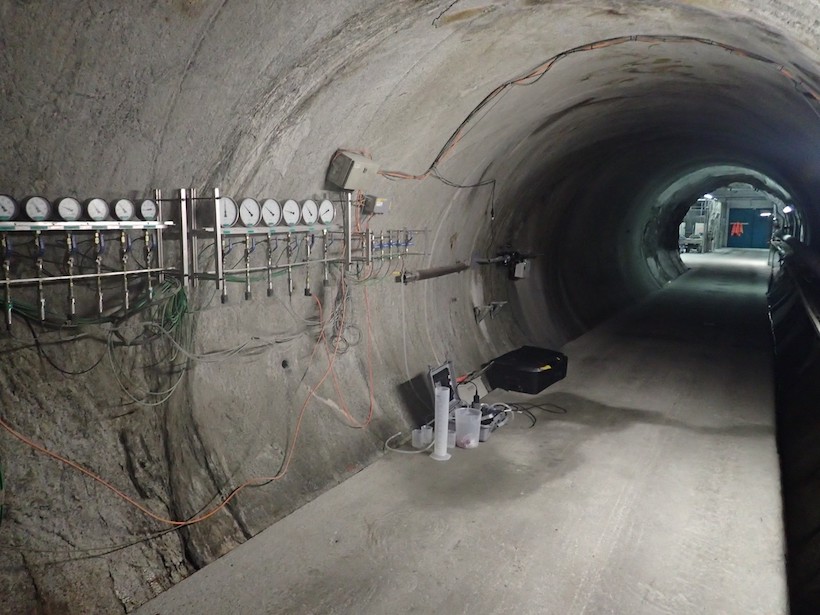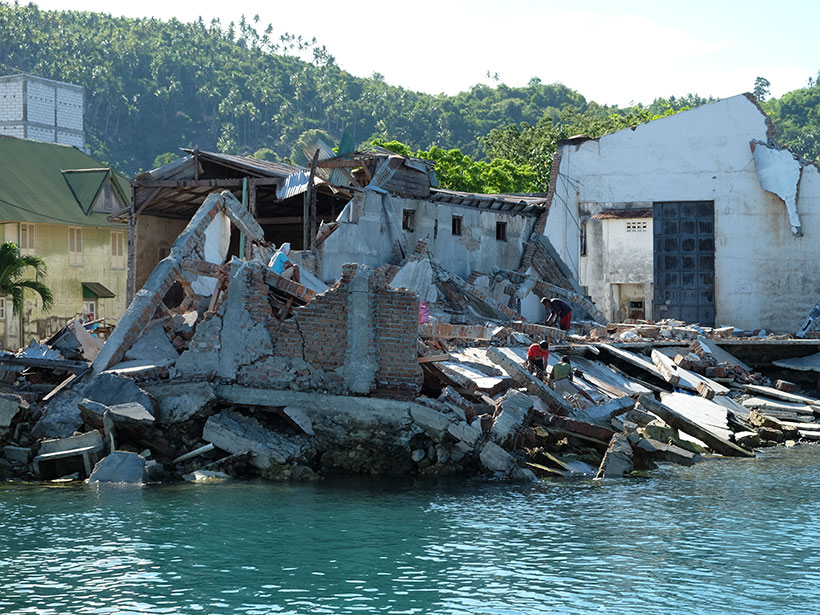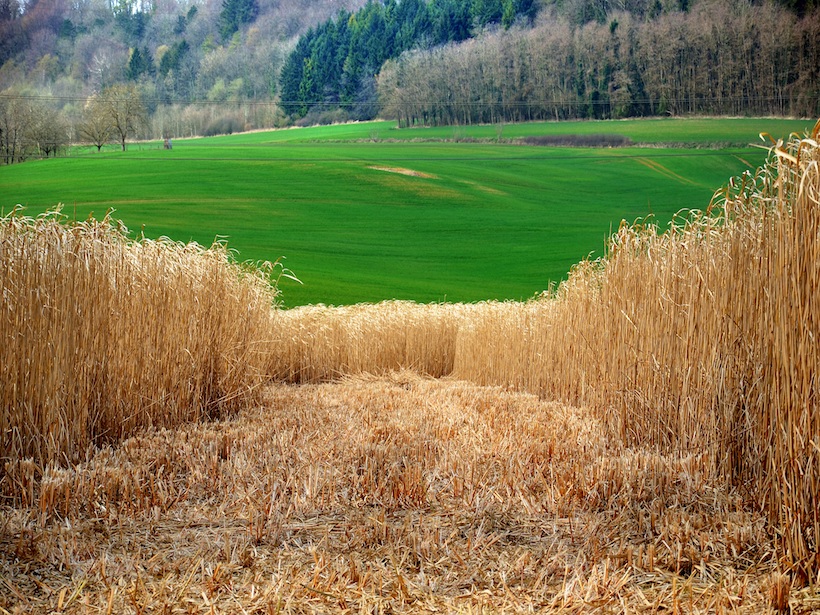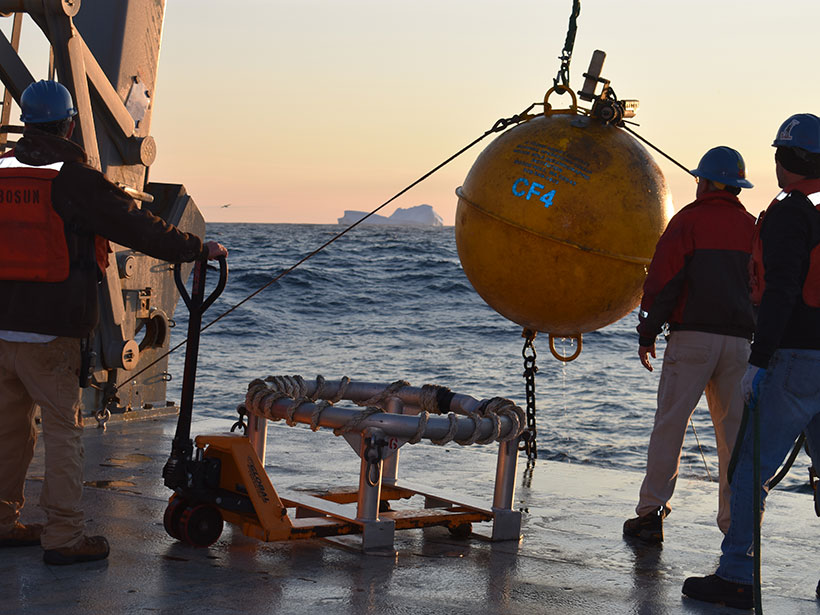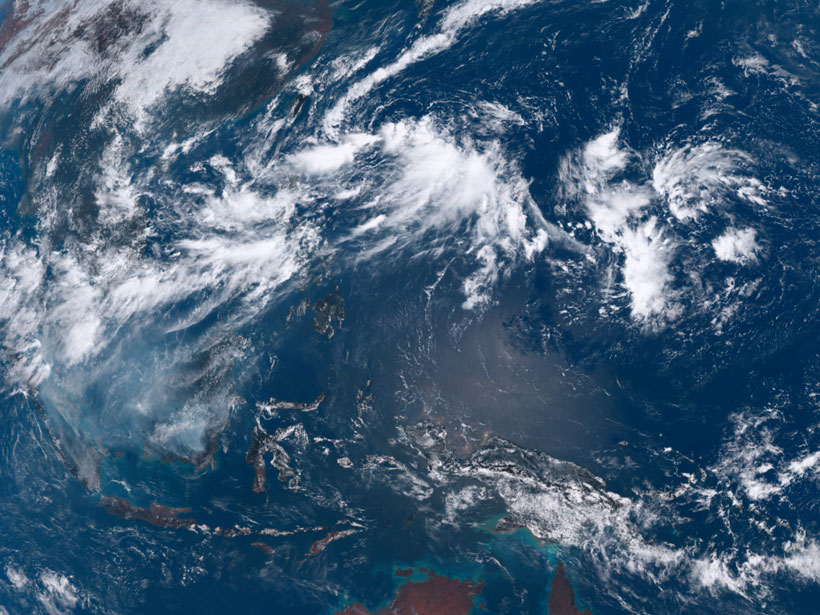Increased seawater exposure from flooding and storms is altering how coastal forests cycle methane, leading to more greenhouse gas accumulation in tree stems and soil.
Aaron Sidder
Aaron Sidder is a freelance writer based out of Denver, Colo. He has a master’s degree in ecology from Colorado State University. Aaron was an AGU-sponsored AAAS Mass Media Science & Engineering Fellow at National Geographic in 2016, and he has been writing for Eos ever since. In addition to Eos and National Geographic, he has written for National Geographic Kids Magazine, Smithosonian Smart News, 5280 Magazine, and the Santa Fe Institute. In his free time, he cultivates an extensive—and growing—collection of field guides from around the country.
Earthquakes Can Acidify Groundwater
Fracturing during microearthquakes can cause groundwater pH drops. The change is temporary but can be equivalent to the difference between water and vinegar.
Untangling Drivers of Ancient Hurricane Activity
Individual paleohurricane records extracted from the sediments of storm-battered islands do not clearly implicate climate as having shaped hurricane frequency over the past millennium.
Certain Rock Formations Can Lead to In-Home Radon Risks
Researchers in Kentucky have merged results from home test kits with the state’s geologic map to produce a map of indoor radon potential based on the geology underlying homes in the state.
Redes Sociales Ayudan a Revelar la Causa del Tsunami en Indonesia en el 2018
Videos de Twitter y YouTube ayudaron a los científicos a descubrir los mecanismos físicos que generaron el gran tsunami en Palu Bay después de un terremoto de magnitud 7.5.
Finding Value in the Margins to Build a Bioeconomy
Monetizing environmental services of biofuel feedstocks could incentivize farmers to take advantage of marginal agricultural lands while also benefiting the landscape.
Southern California’s Crustal Motion Tells of Earthquake Hazards
Precise measurements of the Earth’s vertical surface motion help to elucidate the hazards of faults in an earthquake-prone region.
Improving Proxy Representations of Ocean Properties
Many oceanic properties are not directly observed but are instead estimated using proxy measurements. A new method uses physics-based correlations to reduce uncertainty in this relationship.
Warming in the Antarctic Stratosphere Affects Tropical Weather
Rapid temperature spikes in the stratosphere above Antarctica can influence weather and spark cyclones in the Northern Hemisphere’s tropics.
¿Cuántas Modificaciones Puede Aguantar el Ciclo de Agua de la Tierra?
El marco teórico que estudia los límites planetarios define cuánta perturbación humana pueden soportar los diversos procesos del sistema terrestre, pero puede que no describa adecuadamente el ciclo del agua o la medida en que lo hemos alterado.


